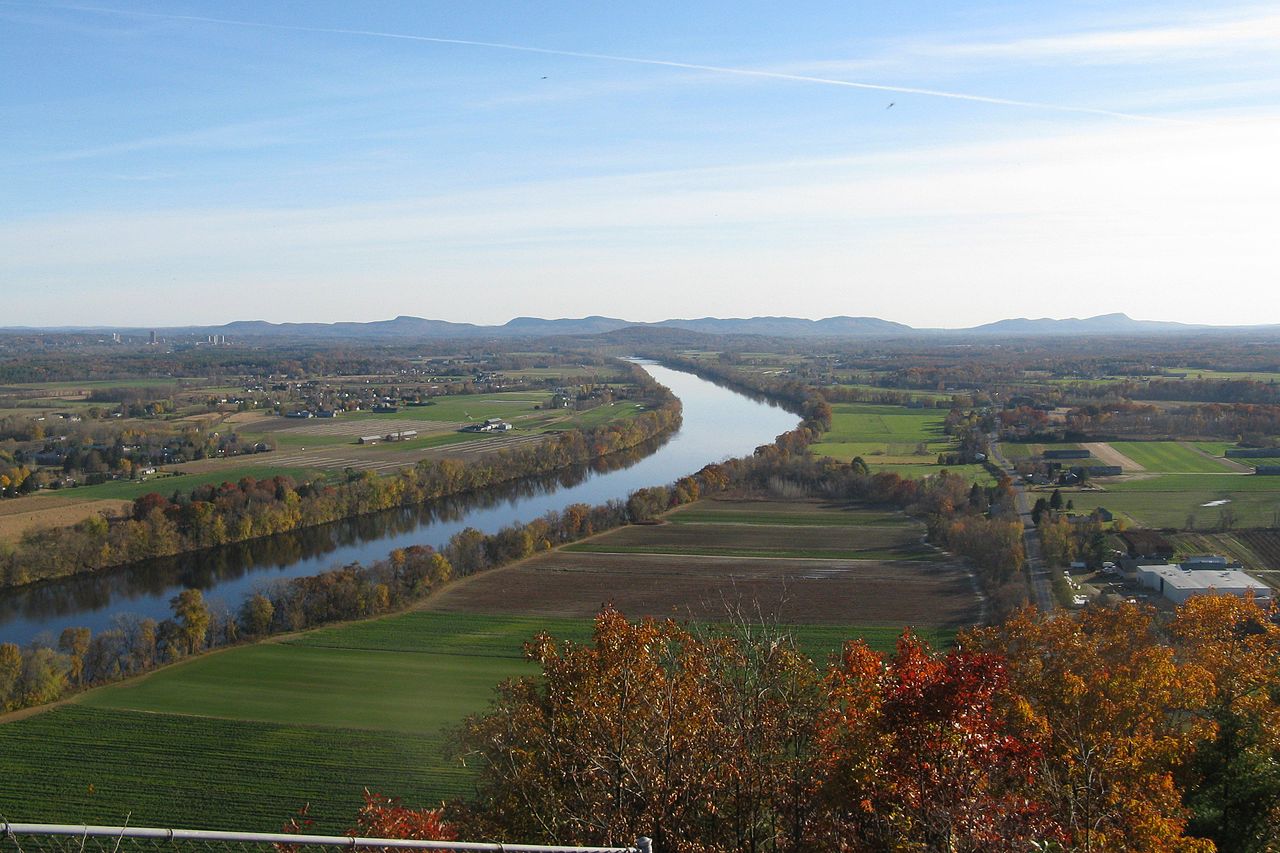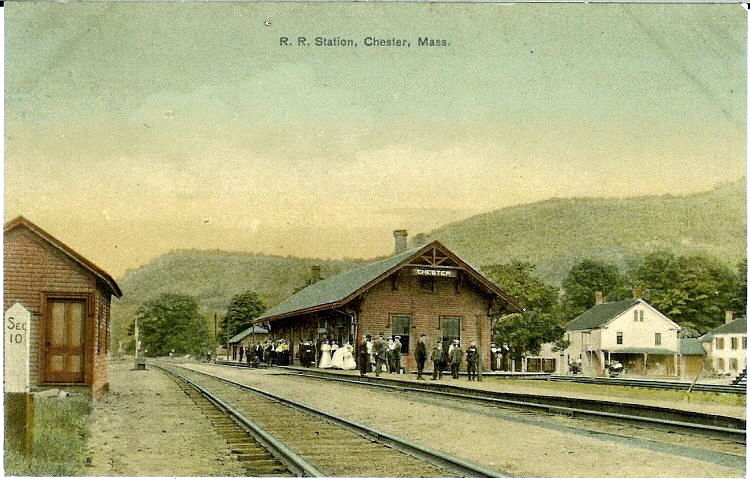To Be (1st) Franklin: Albright-Hanna Has Her Cutaway Shot to Candidate…
To Be (1st) Franklin is a series on the open race for the 1st Franklin House District.
HUNTINGTON—Retirements, resignations and deaths are ushering in a political shift in the 413 from the Vermont border to here in the foothills of the Berkshires. For the 1st Franklin House district, thankfully, the change is not borne of scandal or death. Though after 25 years in office, Stephen Kulik’s departure shall reverberate across the 19 towns he represents.
A mob of candidates has formed, eager to tell Beacon Hill the story of this sprawling district. The first to plunge in was documentarian and filmmaker Kate Albright-Hanna. After a career behind the camera, she is putting her eye for detail to work on her own campaign.
“What I love about this 1st Franklin District is that every town has its own personality,” she said. While each possess a unique character, they all share “a very strong sense of identity and self-reliance.”
The 1st Franklin House district’s cast of characters includes Ashfield, Buckland, Conway, Chester, Chesterfield, Cummington, Deerfield, Goshen, Huntington, Leverett, Middlefield, Montague, Plainville, Shelburne, Shutesbury, Sunderland, Whatley, Williamsburg, and Worthington.
Eight candidates, all Democrats, have filed. With no Republicans running, the September 4 primary will be tantamount to election.
Rumors that Kulik was eyeing the exit gave Albright-Hanna a chance to plan and jump in early. She said Huntington Select Board member Ed Renauld had told her she could be the strong voice needed post-Kulik.

Upper Valley House seats. The 1st Franklin is in burnt brown. Click for larger image (via malegislature.gov)
During an interview over lunch at The River Café across the Westfield River from Route 20, Albright-Hanna discussed her life and the issues central to the race.
For a rural district like the 1st Franklin, concerns range from prosaic but crucial matters like agriculture and regional school transportation funding to big-ticket items like healthcare.
She and her family had come here looking for a small town that shared their values and where residents can “just walk in the door and experience people encouraging us to participate.” Though she had always “vaguely” thought about seeking office, that’s exactly what has happened to her.
Over the years, Albright-Hanna’s career has transitioned between journalism and politics. She worked for MSNBC, VICE, and CNN—where her team won two Emmys for post-9/11 documentaries. Today she runs a documentary company that has produced a range of projects. The latest is on corruption in New York state government.
She played a key role in establishing Barack Obama’s social media dominance during the 2008 campaign, running his YouTube channel. Later she advised Zephyr Teachout’s 2014 primary challenge to New York Governor Andrew Cuomo. Albright-Hanna was the deputy chair of an effort urging Senator Elizabeth Warren to run for president in 2016.
Journalists have channeled their communication or storytelling skills into politics for eons. Examples include Winston Churchill, Canada’s Foreign Minister Chrystia Freeland, Al Gore, and William Randolph Hearst. Plenty more have sought local office or served elsewhere in government.

Kate Albright-Hanna with Obama 2008 new media staff. Arun Chaudhary is seated at left. (via civichall.org/Kate Albright-Hanna)
Albright-Hanna’s Obama gig may have mirrored journalism most closely, though. A hallmark of Obama’s new media staff was using supporters’ stories to build the campaign’s broader community.
Arun Chaudhary, a one-time film school instructor and later the first White House videographer, was there. Albright-Hanna recruited him to “up the ante” of the Obama campaign’s new media department.
“Kate’s strength as a documentarian was always that she would urge we ‘trust the material,’” Chaudhary, now a partner at Revolution Messaging, said in an email. In other words, she was “listening and looking,” not pushing ideology or agendas to produce videos.
“There was not a state or a town or an event anywhere that we would show up at that Kate wasn’t already learning exactly what was on folks mind and making them comfortable enough to talk about it,” Chaudhary said.
Albright-Hanna has experience with small communities, like those she reached out to on Obama’s campaign. Born in Texas, she spent time at her grandparents’ cattle ranch. Perhaps foreshadowing her later career, Albright-Hanna’s grandmother wrote for the local paper and her grandfather served in the legislature.
The Hilltowns of Western Massachusetts are not the plains of Texas. However, they presented Albright-Hanna and her family with what they sought in a close-knit community. The couple settled on Huntington after looking at towns on the other side of the Berkshires, familiar to the then-New Yorkers.
“There’s a sense of authenticity here [in Huntington] that is missing in other parts that are either built for tourists or built because people are concerned about flipping their homes.”

Huntington town hall (via wikipedia)
In between spoonfuls of hot soup, cafe patrons stopped to greet Albright-Hanna and offer good luck.
“This is a place where neighbors actually know each other and care for each other,” she said.
Yet, the area is also under threat. If Western Massachusetts is generally falling behind the commonwealth overall, the 413’s rural communities are sputtering. Jobs like those at nearby Russell’s ex-paper mills have been fading for years as annual operating costs rise and infrastructure needs go unmet.
Albright-Hanna highlighted chronic underfunding of regional school transportation and meager state payments-in-lieu-of-taxes (PILOTs) for state land. Regional transportation, she said, is a “tiny percentage of the state budget.” Yet, the costs can be “the difference between life and death” for affected communities. Meanwhile, fairer state PILOTs could be plowed into municipal investments.
That focus on such issues has earned Albright-Hanna support from Huntington’s Treasurer and the entire Chester Select Board.
In a campaign press release, Chester Select Board Vice-Chair Barbara Huntoon praised Albright-Hanna’s energy and commitment. “She gets the big picture and the nuances that make us unique and I look forward to working with her on the Hilltowns’ behalf,” Huntoon said.

This view, looking South from Sugarloaf Mountain in Deerfield shows the rural, but less craggy part of the 1st Franklin. (via wikipedia)
Agriculture presents an opportunity, too. Many younger folks, Albright-Hanna said, are taking up the craft, but they need support to build the infrastructure that sustains farms and keeps them viable.
There’s another benefit, too, she argues, “It is really important to our community that we have a strong sustainable foodshed.”
Albright-Hanna is a co-founder and board member of Rural Organizing, a group that advocate progressive policies for rural communities. Not surprisingly, she sees a connection to issues featured in the national conversation.
She voiced support for single-payer healthcare and the Fair Share Amendment, which would raise taxes on Massachusetts’s millionaires.
“Single-payer healthcare gives everybody the freedom to innovate,” Albright-Hanna said. “If they are not going to take action on the federal level, we need to be a model for the rest for the country.”

Chester had a stop, too. (via wikipedia)
That freedom to innovate, she argues, could help small business owners. Both those already here and entrepreneurs looking to relocate could take more chances without worrying about health insurance.
Funds from Fair Share could be plowed into transportation upgrades that won’t necessarily distort small towns’ character, like rail—the old Boston & Albany line used to stop here.
With so many variables in this race, it’s difficult to intuit where it’s going. What’s undeniable is whoever wins will be joining a possibly all-new House and Senate delegation from much of Franklin and Hampshire counties.
“At this moment of change, we need strong, creative, new voices fighting for Western Mass at the Statehouse,” Longmeadow Senator Eric Lesser said in an email. Lesser, who has endorsed Albright-Hanna, has known her since their time on Obama’s 2008 campaign.
“The problem with government is that we don’t elect communicators,” Chaudhary said. “I don’t mean to say that all of our problems can be solved with storytelling,” he continued. “But it should be immediately obvious to anyone paying attention that how we talk about issues and how we talk to each other *is* coarsening and isn’t going to get better without professional help.”
“I can’t think of anyone better to tackle this for the people of Massachusetts,” he said of Albright-Hanna.
Despite the stakes and interest, Albright-Hanna hasn’t found the race becoming nasty. The opposite has been true.
“On this level it’s very personal and the other candidates and I are in the same room competing for the same small universe of voters,” she said. “You can’t help but form relationships with the other candidates.”
Nor has the vastness of the field intimidated her. Rather, it’s a good thing.
“Democracy has broken out across Massachusetts,” Albright-Hanna said, paraphrasing a recent op-ed.
